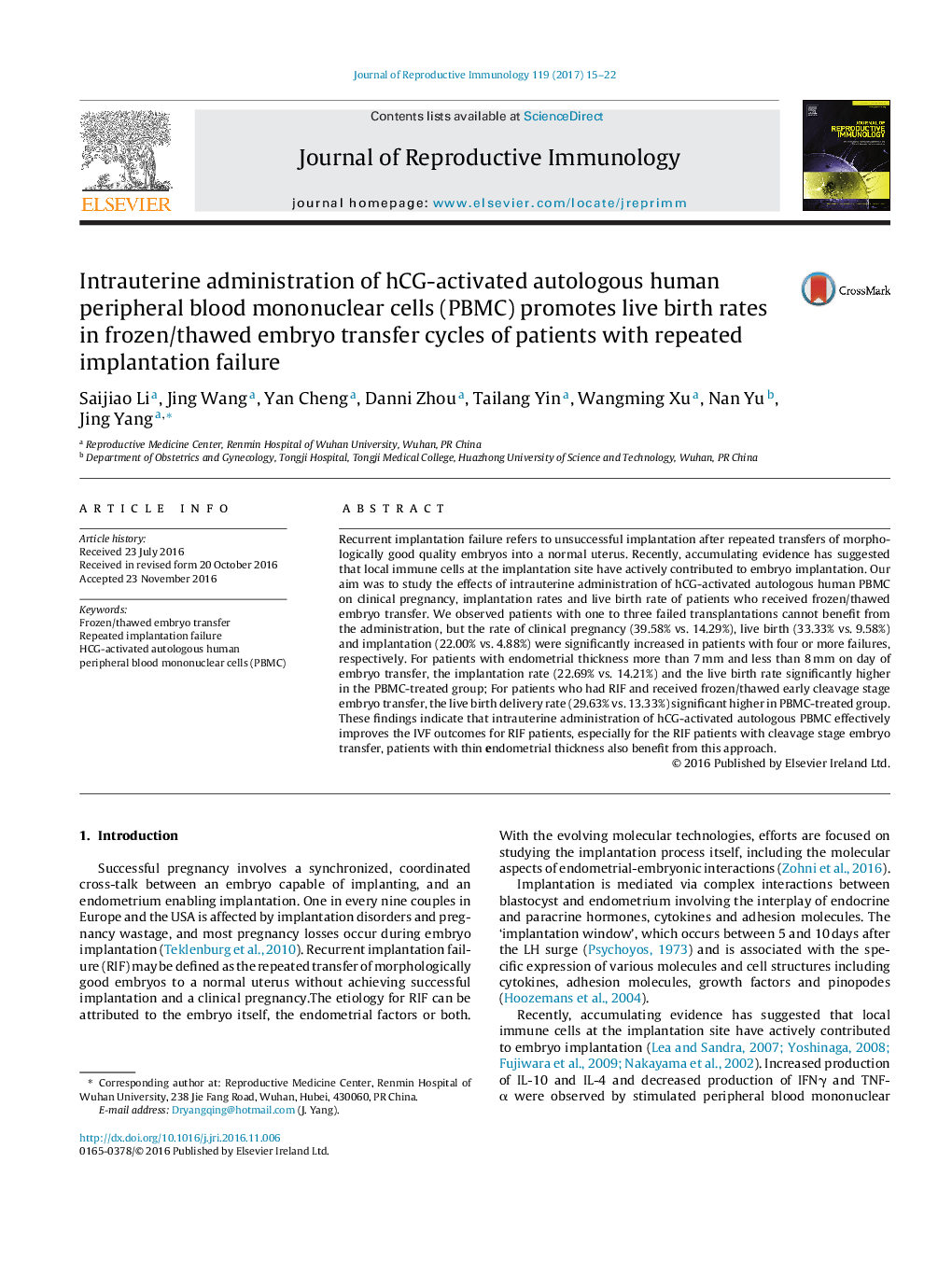| Article ID | Journal | Published Year | Pages | File Type |
|---|---|---|---|---|
| 5696461 | Journal of Reproductive Immunology | 2017 | 8 Pages |
Abstract
Recurrent implantation failure refers to unsuccessful implantation after repeated transfers of morphologically good quality embryos into a normal uterus. Recently, accumulating evidence has suggested that local immune cells at the implantation site have actively contributed to embryo implantation. Our aim was to study the effects of intrauterine administration of hCG-activated autologous human PBMC on clinical pregnancy, implantation rates and live birth rate of patients who received frozen/thawed embryo transfer. We observed patients with one to three failed transplantations cannot benefit from the administration, but the rate of clinical pregnancy (39.58% vs. 14.29%), live birth (33.33% vs. 9.58%) and implantation (22.00% vs. 4.88%) were significantly increased in patients with four or more failures, respectively. For patients with endometrial thickness more than 7Â mm and less than 8Â mm on day of embryo transfer, the implantation rate (22.69% vs. 14.21%) and the live birth rate significantly higher in the PBMC-treated group; For patients who had RIF and received frozen/thawed early cleavage stage embryo transfer, the live birth delivery rate (29.63% vs. 13.33%) significant higher in PBMC-treated group. These findings indicate that intrauterine administration of hCG-activated autologous PBMC effectively improves the IVF outcomes for RIF patients, especially for the RIF patients with cleavage stage embryo transfer, patients with thin endometrial thickness also benefit from this approach.
Keywords
Related Topics
Life Sciences
Immunology and Microbiology
Immunology
Authors
Saijiao Li, Jing Wang, Yan Cheng, Danni Zhou, Tailang Yin, Wangming Xu, Nan Yu, Jing Yang,
